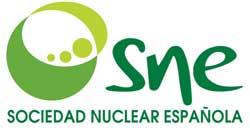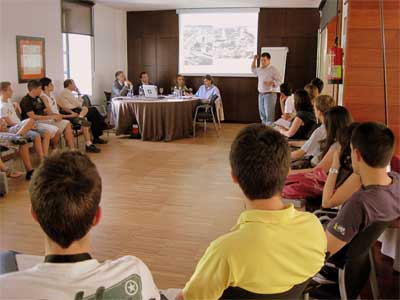

New plans for nuclear education in Spain as part of the European Higher Education Area (EHEA)
Bologna
The construction of the European Higher Education Area (EHEA) received a decisive boost when the Declaration of Bolonia was signed on June 19, 1999 by the Ministers responsible for Higher Education in 29 European countries, thereby giving its name to the Bologna Process. It is an inter-governmental process involving the participation of universities, students, the European Commission and other organisations. The goal of the process was to establish the European Higher Education Area in 2010.
The objective of EHEA is not to standardise higher education systems, but rather to increase the degree of compatibility and comparability between them, while respecting their differences. The construction of EHEA is based upon agreements reached and commitments made about the objectives that have to be met. EHEA is designed to be an “open space” in which there are no obstacles to the mobility of students, degree holders, professors or administrative staff. It is based on the reciprocal recognition of degrees and other higher education qualifications, transparency (a system of understandable and comparable degrees organised in three cycles), and European cooperation in quality assurance.
Transformation in Spain
University studies in Spain used, traditionally, to be divided into diploma and degree courses. Diplomas, three-years long, provided a specialised education needed to enable one to carry out mid-level tasks. Degrees, five or six years long, provided a very general education initially, with specialisation occurring in the later years of the course. Although the possibility to continue studying from a diploma to a degree level existed, this was not often done because it was very difficult to get access to the courses needed to allow such a transition to take place. On the other hand, master classes were not officially taught because a professional qualification was given upon completion of the degree course. Master courses, especially in the area of economics and business studies, were considered to be specialised training, similar to that of an American MBA, but without the official recognition that follows.
Adaptation to the EHEA has transformed this type of structure to the new one established across Europe, i.e. graduate, postgraduate and doctorate studies, with the possibility of natural transfer between them. This has involved the transformation of traditional education systems where technical schools used to offer three-year degree courses and higher educational establishments offered the five and six-year courses.
Postgraduate education in the nuclear sector
Over the last decades, due to the nuclear moratorium that was imposed worldwide and also in Spain after the TMI and Chernobyl accidents, the number of undergraduate and graduate courses in nuclear science offered progressively declined on account of dwindling demand for engineers and professionals in the energy sector.
Today, we can say that this trend is over and, to prove it, there now exist in our country a considerable number of master's degrees related to nuclear energy. Some of them are 100% nuclear-related, covering a wide range of nuclear engineering applications, e.g. from current reactor technology to advanced ones currently under development, projected energy generation from fusion, nuclear waste management or treatment by transmutation. Other masters degrees are more general, training students to become professionals in various types of power generation (not only in nuclear), with the job market ultimately deciding his/her future career orientation. Some are specifically geared to power generation from renewable energy sources. Nuclear generation has been included as one of these sources, which enable mankind to develop in a sustainable way. (See table 1)

SNE involvement
The SNE has always promoted the training of its members through various mechanisms. With regards to financing, it supports 5 scholarships for postgraduate studies in nuclear science every year. It also invites students to submit their work in a competition to see who wins a prize for the best “End of Degree project/dissertation”.
The SNE also contributes to the education of its members through the organisation, in collaboration with various universities, of joint conferences and debates for students on nuclear issues.
Nuclear Youth give talks and seminars on nuclear issues, which can also be seen as part of their training. Finally, in order to advertise existing masters and postgraduate courses, SNE dedicates every year an issue of Nuclear España to this topic. A list of the courses is also published on the web. Table 1 illustrates the interest that universities and other institutions in Spain are showing in the nuclear sector.
Nuclear Science and Technology |
Universidad Politécnica de Madrid |
Electric Power Generation Technology |
Tecnatom |
Nuclear Engineering and Applications |
Ciemat |
Industrial Safety and Environment |
Universidad Politécnica de Valencia |
Energy Technology for Sustainable Development |
Universidad Politécnica de Valencia |
Energy Engineering |
Universidad Politécnica de Cataluña |
Nuclear Instrumentation Technology |
Universidad de Huelva |
Sustainable Energy Engineering |
Universidad del País Vasco |
Nuclear Fusion Science and Engineering Physics (Erasmus Mundus) |
Universidad Complutense de Madrid |
Energy Engineering |
Universidad Politécnica de Madrid |
Power generation, promotion, technology and operation |
Universidad Pontificia de Comillas |
Table 1: Spanish nuclear-related masters courses
|

